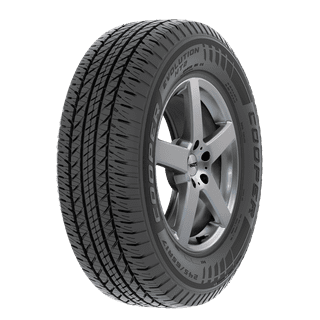Tire Service: The Effect of Weather
When it pertains to making sure ideal efficiency and security when traveling, comprehending the impact of climate condition on tire service is vital. From scorching heat to icy roads, each weather element can dramatically influence tire capability and general driving experience. By delving into the impacts of varying weather on tires, motorists can gain valuable understandings that may boost their vehicle's efficiency and durability. In this discussion, we will certainly discover the intricate relationship between weather and tire service, shedding light on the value of weather-specific tire upkeep methods and factors to consider.
Warm and Tire Performance
When subjected to high temperature levels, tires experience adjustments in efficiency that can substantially affect automobile security and handling. The warmth produced from extended driving or heat problems triggers the tire rubber to soften, causing minimized walk life and enhanced wear. As the rubber becomes softer, the tire's grasp on the road reduces, impacting braking ranges and general traction. In extreme cases, too much warm can even cause tire blowouts, positioning a serious security threat to the vehicle and its passengers.
Moreover, high temperature levels can accelerate the procedure of tire aging, causing the rubber to wear away quicker. This can lead to cracks, protrudes, and various other forms of damages that compromise the structural honesty of the tire. To mitigate the impacts of warmth on tire performance, chauffeurs must regularly inspect their tire pressure, turn tires to make certain even wear, and inspect for any type of indications of damage. In addition, utilizing tires particularly created to endure high temperature levels can help preserve optimum performance and safety on the roadway.
Winter Impacts
Winter problems can have a considerable effect on tire performance and safety. As temperature levels decline, tire rubber can harden, bring about reduced grip on icy or snow-covered roadways. In chilly climate, tires might also shed atmospheric pressure more rapidly, which can affect dealing with and fuel performance. Furthermore, chilly temperature levels can cause tire sidewalls to stiffen, enhancing the risk of damage from gaps or various other roadway dangers.
To minimize the effects of winter on tires, it is vital to on a regular basis check tire pressure and inflate them to the producer's advised levels. Utilizing winter or all-season tires created for chilly weather conditions can additionally enhance traction and hold on icy or snowy roadways - tire shop morris. Correct tire upkeep, consisting of regular inspections for wear and damages, comes to be a lot more crucial throughout colder months to make sure optimum performance and safety and security
Rainy Issues Influence
During wet conditions, tire performance and security can be significantly affected by the wet road surfaces and reduced exposure. The step pattern of tires plays an important role in preserving grip on wet roads. Tires with damaged footsteps are extra prone to hydroplaning, where a layer of water accumulates between the tire and the roadway surface area, resulting in loss of grip. To fight this, drivers should consistently inspect their tires for ample tread depth and consider buying tires particularly developed for damp problems.

Snow and Tire Safety
When driving in snowy conditions, having the right tires can make a significant distinction in safety and security and performance. Winter months tires are created with unique rubber substances and step patterns to give better grip on snow and ice compared to all-season tires.
In addition why not try here to using winter season tires, it is vital to guarantee they are appropriately pumped up. Cold climate can create tire stress to go down, affecting grip and handling (tire shop morris). Frequently inspecting and preserving the appropriate tire pressure is vital for ideal performance in snowy conditions

Weather-Related Tire Maintenance
Weather-related tire upkeep encompasses a range of techniques aimed at guaranteeing optimum tire feature and longevity in various weather condition scenarios. One vital element of weather-related tire maintenance is tire stress policy. Inspecting tire step on a regular basis and replacing tires when step wear gets to a particular depth is essential for preserving traction and security in unfavorable climate.
Final Thought
In verdict, weather condition problems have a significant impact on tire efficiency and safety and security (tires morris il). From heat impacting tire stress and put on to cold weather minimizing grip, it is necessary check my reference to think resource about the weather condition when keeping and making use of tires.
In this discussion, we will explore the detailed relationship between climate problems and tire solution, shedding light on the relevance of weather-specific tire upkeep techniques and factors to consider.
